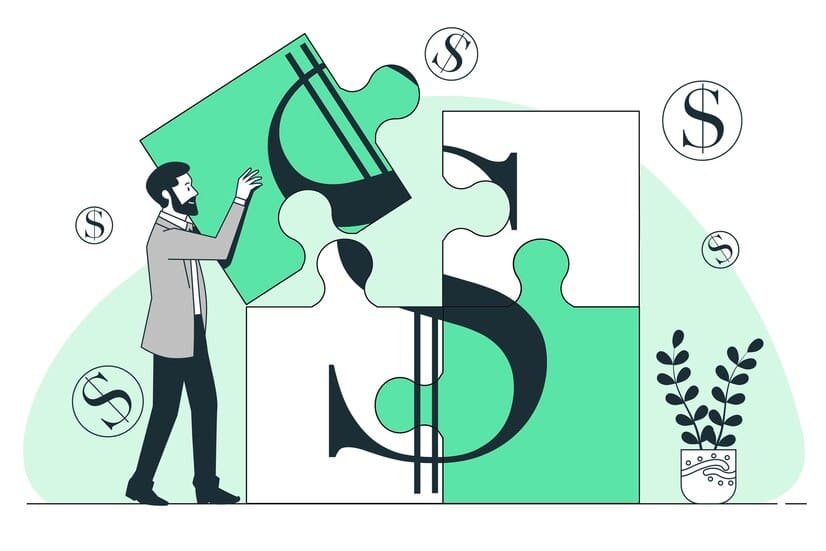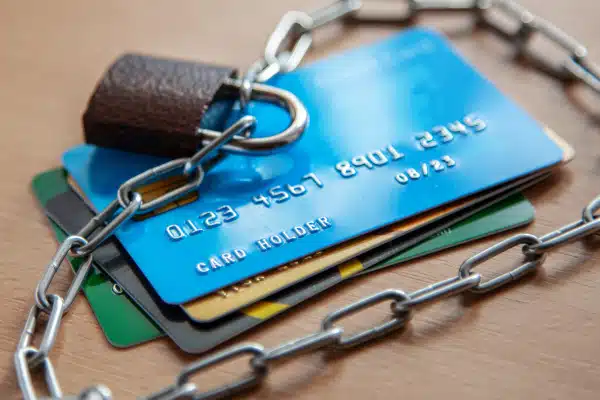
Since we know that you want to develop yourself more every day, we have separated some tips that will help you with your financial education. Check them out!
Have a healthy relationship with money
You know the saying that “money doesn’t bring happiness”? Scratch it out of your life!
Money is not good or bad. It is just a means to do something. By knowing how to take care of your finances, it’s completely possible to use this resource to provide wonderful moments for you and the people you love.
Set Goals and Invest
Financial education is very much linked to planning. When you want to buy something, for example, it’s important to define when this purchase will be made and how much you will save each month.
Having money set aside for a goal increases your bargaining power and opens up more favorable purchasing options. In other words, you save!
And to do this its not very difficult: choose an investment, put money into it every month, and withdraw when you reach the desired amount.
Keep an emergency reserve
For safety’s sake, it’s very important that you always have an emergency reserve. The idea of this reserve is that it can support your expenses in case something unexpected happens.
Experts recommend that you give preference to investments with daily liquidity. In addition to this, it’s important to have at least 6 months of salary in this investment. This is the security you have if by chance you are fired, become unable to work for health reasons, or if your company goes bankrupt.
Don’t leave your money in savings accounts
Even today there are people who believe that savings is an investment and that it’s safe to leave your money there. If you are one of these people, here is a warning: this thinking is wrong!
The average return on savings is lower than the annual growth rate of inflation. Do you know what this means? That when you leave your money in a savings account, you are gradually losing your purchasing power.
The ideal is to look for other types of investments, and especially to diversify your portfolio. Try to start with peer-to-peer and Real Estate.
Note down everything you spend
Last but not least, good financial education says that we must have control over our spending. So don’t be lazy: put together a spreadsheet and enter every penny you spend, from the coffee cup to the property tax.
This may seem like a boring task – and it’s! -but you quickly get used to it. And, as a reward for doing the expense spreadsheet, you will know exactly how much you spend, how much you invest, and how much needs to be saved or cut to achieve your goals.
You see, it’s not that difficult to take care of your money. Moreover, the better you manage this resource, the more control you’ll have over your own life. This is why personal development is so closely linked to financial education!
Financial education frequently asked questions
Below we have selected some important questions for you to clarify your doubts about financial education. Follow the list!
What is financial education?
The concept of financial education is related to the understanding of savings and investments. When we understand how these products work, we’re able to make better choices for our well-being. We manage our money better, use the resources at the right time, and take advantage of good market opportunities.
For this, it’s necessary to develop some specific skills. There are educational materials and courses that teach beginners how to save money. There is also training on more advanced topics, such as investments and other ways to achieve financial growth.
What are the financial education goals?
The great objective is to empower people financially. This is because people who know how to spend contribute to a healthier economy.
For example, consumers with basic notions of financial education only buy what they can afford. This way he doesn’t incur high debts and doesn’t run the risk of defaulting.
With low levels of default in the country, it’s easier to obtain credit in the banking system. Then this contribution can be used for the small producer to invest in new businesses, generating more jobs and income. In other words: the economic wheel turns and everybody wins.
How to have a good financial education?
You can start your path to financial growth through the internet. Here on Finance ADX, we always bring tips for those who want to save, save and invest money.
It is also worth remembering that education comes from home.
After you have been informed, it is worth talking to your family about savings and conscious consumption. Money does not need to be a taboo subject. It should, on the contrary, be a common subject with your spouse and children.
How to educate young people about finances?
You can do your part at home. Try giving your children allowance. This way they learn to control their spending within a maximum budget for that period.
Another strategy is the adoption of a piggy bank for savings. Coin after coin, the child accumulates enough wealth to buy a toy, a video game, or another material good that he dreams of.
How to do personal financial plan?
One of the best personal finance tools is a spending spreadsheet. There you write down all payments and purchases of the month. With a clearer view of household expenses, it’s possible to see opportunities for improvement: cutting down on superfluous things, saving on essential items, etc.
Next comes the reserve. The money left over should be invested in savings or in another profitable fund. By making a habit of saving a fixed amount every month, you can accumulate wealth.
Take the opportunity to set goals, such as “get X amount of money in Y years and use the money to travel”. This is an extra incentive to save money.
How to save money?
The golden rule of financial education is simple: never spend more than you earn. In other words, the standard of living must be compatible with your income.
There are several tactics to save money. For example, cook on Sunday and store small portions in the freezer. You’ll have enough food for the whole week without wasting gas every day.
Another tip is to buy in cash. Those who get lost in the installments end up spending too much.
Also, within your budget, set aside at least 10% of your salary for savings. Pretend it’s a fixed expense, like the water or electricity bill. In a short time you’ll have a nice amount of money.
How to invest money?
The first investment of any person should be in an emergency reserve, with an amount equivalent to six months (or more) of salary. This is the cushion that will support you in moments of unforeseen expenses.
Then the money can be allocated to more profitable funds, or even stocks. They yield varying interest, but also present risks. Therefore, it is advisable to study the step-by-step of the applications first to, only then, build an investment portfolio compatible with your profile.
Was this article useful for you? If so, share it with your friends so that together we can help more people! And don’t forget to keep following the Finance ADX blog to check out other financial education tips.

 South Africa’s Capitec profit rises 84%
South Africa’s Capitec profit rises 84%  5 types of scams to not fall and keep your money safe
5 types of scams to not fall and keep your money safe